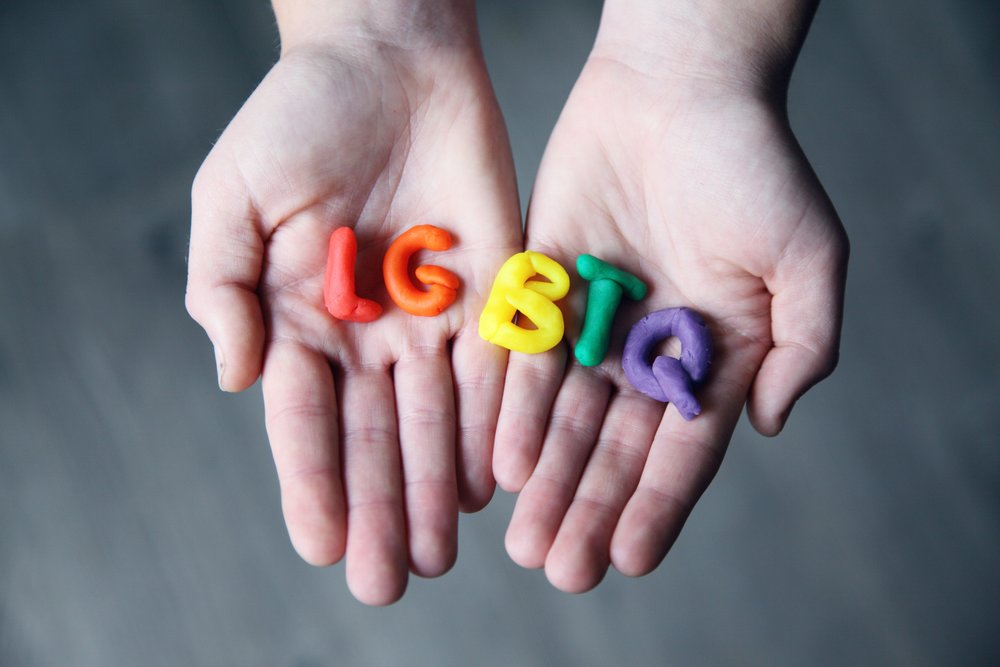If you’re looking for an LGBTQ therapist, it can be tough to know where to start. There are a lot of therapists out there, but not all of them are LGBTQ-friendly. How do you find someone who understands your needs and will be able to help you through your struggles? In this blog post, we’ll provide some tips on how to find an LGBTQ therapist who is right for you.
Contents
Who Is LGBTQ Therapist?
 An LGBTQ therapist is a trained mental health professional who specializes in working with lesbian, gay, bisexual, transgender, and queer clients. LGBTQ therapists are often members of the LGBTQ community themselves and are committed to providing culturally competent care to their clients.
An LGBTQ therapist is a trained mental health professional who specializes in working with lesbian, gay, bisexual, transgender, and queer clients. LGBTQ therapists are often members of the LGBTQ community themselves and are committed to providing culturally competent care to their clients.
More often than not, LGBTQ therapists have received specific training in working with LGBTQ clients and are familiar with the unique challenges that members of the community face. They understand the importance of creating a safe and affirming space for their clients to express themselves.
LGBTQ psychotherapists are more sensitive and aware of the LGBTQ community’s intricacies and terminology than their non-LGBTQ counterparts. While all therapists are trained and educated to be inclusive and non-judgmental in their practice, LGBTQ psychologists have an additional level of awareness and understanding that can benefit LGBTQ patients.
Some may be straight or cisgender (meaning, not transgender), but they have a deep understanding of and commitment to working with queer people.
How They Can Help You?
They work with individuals, couples, and families to explore how identity, relationships, and family dynamics are affected by coming out or transitioning. They also help people deal with homophobia, biphobia, and transphobia.
There are many reasons why someone might seek out an LGBTQ-affirmative therapist. These include:
- Exploring one’s identity
- Coming out to family and friends
- Dealing with discrimination or violence
- Transitioning genders
- Exploring alternative relationship models
- Building self-esteem
- Working through trauma related to homophobia, biphobia, or transphobia
These things are just a few examples of what an LGBTQ therapist can help with. If you identify as LGBTQ or think you might know that there are people out there who can help you through whatever challenges you’re facing. There are many different types of therapists and it’s important to find one that you feel comfortable with.
What Issues Does A LGBTQ Therapist Treat?
 Now that you know how to find an LGBTQ therapist, what issues can they help you with? Here are some common topics that LGBTQ therapists are trained to treat:
Now that you know how to find an LGBTQ therapist, what issues can they help you with? Here are some common topics that LGBTQ therapists are trained to treat:
- Coming out and exploring your identity
- Managing anxiety, depression, and other mental health conditions
- Dealing with homophobia, biphobia, and transphobia
- Relationship issues
- Sex and intimacy
- Family conflict
- Addiction and recovery
- Trauma and abuse
No matter what your specific needs are, an LGBTQ therapist can provide you with the support and guidance you need to live a happy, healthy life. It is important to remember that you are not alone in this journey and that help is available. If you’re ready to take the first step, contact an LGBTQ therapist today.
Otherwise, if you avoid these conditions can cause severe consequences in your mental and emotional state. That is why it is important to get help from a therapist as soon as possible.
Some people might feel like they don’t need help because they are “just gay/bi/trans”, but that’s not the case. Everyone goes through struggles and sometimes we need someone to talk to in order to help us get through them. That’s what therapists are for!
What To Expect?
If you have chosen to seek out therapy, you may be feeling scared, nervous, or even ashamed. You may be wondering if your therapist will judge you, or if they will be able to help you at all. It is important to remember that seeking out help is a strength, not a weakness.
A good therapist will provide a safe and non-judgmental space for you to share your experiences and feelings. They will work with you to help you understand yourself better and make the changes that you want to see in your life.
Moreover, it is important to find a therapist who is a good fit for you. Not every therapist will be right for every person, and that’s okay. If you don’t feel comfortable with your therapist, or if you don’t feel like they are helping you, it is perfectly fine to seek out someone else. Just make sure to feel confident in your decision before making a change.
What To Look For?
When searching for an LGBTQ therapist, it is important that you find someone who is knowledgeable and sensitive to the unique issues faced by LGBTQ individuals. There are a number of things to look for when choosing an LGBTQ therapist, including:
- An understanding of and sensitivity to the unique issues faced by LGBTQ individuals
- Knowledge of the coming out process
- Awareness of the impact of homophobia and heterosexism on mental health
- An understanding of gender identity and sexual orientation
- An understanding of the Unique challenges faced by LGBTQ youth
- Awareness of the unique needs of transgender individuals
These are just a few of the things to look for when choosing an LGBTQ therapist. If you have any specific concerns, be sure to discuss them with your potential therapist before making a decision. With so many qualified and competent therapists to choose from, you are sure to find one that meets your needs.
The following is a list of questions that you may want to ask an LGBTQ therapist:
- Do you have experience working with LGBTQ clients?
- What is your understanding of gender identity and sexual orientation?
- What are your thoughts on the coming out process?
- How do you think homophobia and heterosexism impact mental health?
- What are your thoughts on transgender individuals and the unique challenges they face?
- Do you have any experience working with LGBTQ youth?
These are just a few of the questions that you may want to ask an LGBTQ therapist. If you have any specific concerns, be sure to discuss them with your potential therapist before making a decision. With so many qualified and competent therapists to choose from, you are sure to find one that meets your needs.
How To Find An LGBTQ Therapist?
 Finding the right therapist can be a daunting task, but it’s even harder when you’re part of the LGBTQ community. Here are some tips on how to find an LGBTQ therapist:
Finding the right therapist can be a daunting task, but it’s even harder when you’re part of the LGBTQ community. Here are some tips on how to find an LGBTQ therapist:
- Check if the therapist is qualified and licensed. All therapists should be qualified and licensed in order to practice, so this is always the first step.
- Look for a therapist who has experience working with the LGBTQ community. Because not all therapists have experience working with LGBTQ clients, but it’s important to find one who does. Otherwise, you may not feel comfortable discussing your experiences and concerns.
- Read online reviews. You can often find helpful reviews of therapists online, from both LGBTQ and non-LGBTQ people. This can give you an idea of what others have thought of the therapist’s services.
- Ask for referrals. If you know anyone who is part of the LGBTQ community, ask for referrals. They may know of a great therapist that they can recommend to you.
- Take your time because finding the right therapist is an important decision. It’s okay to interview a few different therapists before you decide on one.
- Finally, make sure you feel comfortable with the therapist. This is the most important factor, as you need to feel safe and supported in order to discuss sensitive topics. Trust your gut instinct and go with the therapist you feel most comfortable with.
So these are a few tips on how to find an LGBTQ therapist. If you keep these factors in mind, you should be able to find a great therapist who meets your needs. Do not feel discouraged if it takes some time to find the right one, as it’s worth the effort to find someone you can trust and feel comfortable with.
Conclusion
In conclusion, LGBTQ therapist is an important part of the mental health community. They provide a vital service to those who may not feel comfortable with a traditional therapist. It is believed that LGBTQ therapists can help people who identify as lesbian, gay, bisexual, transgender, or queer feel more comfortable discussing their problems.
If you or someone you know is in need of an LGBTQ therapist, there are many ways to find one. Just be sure to do your research to find a therapist that is right for you.
For more information and guidance please get in touch with our expert therapists at Therapy Mantra. They will be more than happy to assist you on your journey to recovery. Contact us today to learn more about our services. You can also book an online therapy session, and Online LGBTQ counseling or download our free Android or iOS app.


